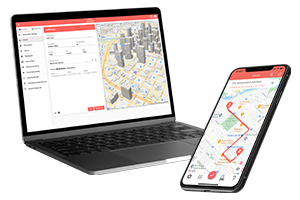January 6, 2020
The Internal Revenue Service (IRS) has announced the 2020 business mileage standard rate of 57.5 cents. This applies to miles driven starting January 1, 2020.
The reasons behind the decrease (as in 2019 the standard mileage rate was 58 cents) are the following:
- National average fuel prices have dropped. This resulted however in an increase in the fuel economy.
- There’s a visible change in the trend of using smaller vehicles instead of large ones. They’re more cost-efficient, use less gas and the repair expenses are also lower. This means spending less on fuel.
Simply put: we spend less on fuel and more on car maintenance and repair.
How are small business owners affected?
As a self-employed, independent contractor, freelancer, consultant, sole proprietor, a partner in a partnership, or a member of a limited liability company that is taxed as a disregarded entity you need to think about which mileage tax deduction method to choose from.
If you use the Standard Mileage Deduction, which is based on the just-announced standard mileage rate, you will need to keep track of all your business trips, reasons, dates, and mileage.
Or you can use the Actual Expense Method, where you need to keep track of all your actual expenses including gasoline purchases, oil and maintenance expenses, interest expenses on the vehicle loan or, lease payments for the tax year, annual depreciation of the vehicle, registration fees, insurance, repairs, tolls, tires, garage rent, parking fees.
To be able to determine which method is most beneficial for you, consider seeking the help of a qualified CPA.
What does this mean to employees and employers?
It is important to note that the business mileage standard rate is not an exact rate, your employer or you as an employee should stick to. It functions as a reference point when establishing a reimbursement rate. If you reimburse or are reimbursed for your business miles more than this announced rate, you’re going to face higher taxation.
Establishing your reimbursement plan should consider different parameters. Such as the average mileage your drivers take, car repair, and maintenance costs, depreciation levels, number, and cost of the company vehicles, etc. Still, the business mileage standard rate is a great anchor to get back to when creating a reimbursement plan.
End note
To claim a business mileage deduction you need to keep track of your driving data. With the MileageWise app, you can easily track your trips and refuelings on the go. With the AI Wizard feature, we have developed a technology that makes an IRS-proof mileage log recommendation for you, doing it by taking into account all the legal regulations about mileage logging and tax return policies.
Using this technology we can make you a recommended, personalized mileage log, which will correspond to the exact mileage you have driven according to your odometer, even retrospectively.
In the process the Built-In IRS Auditor checks and corrects 70 logical conflicts with a smart algorithm, so your mileage log will be IRS-proof without a doubt, meeting every expectation.
But if you’re still worried that you can’t keep track of your mileage, outsource it to our experts. They will be more than happy to help!
Follow us on Facebook, and stay up-to-date with what else we can help you with!




